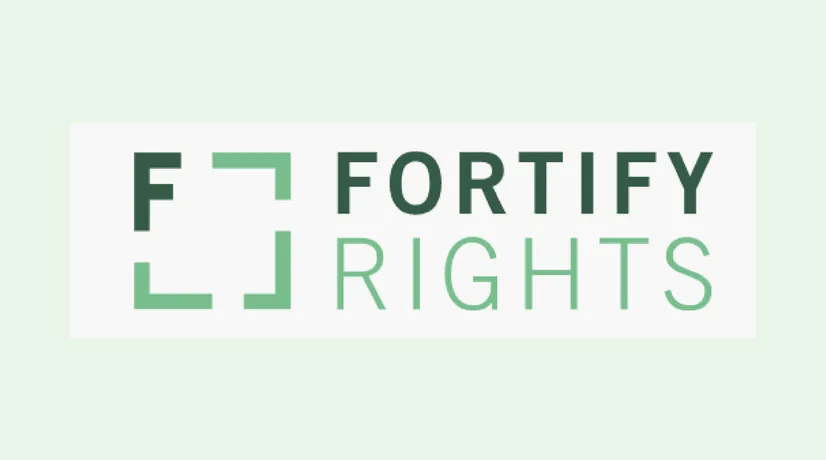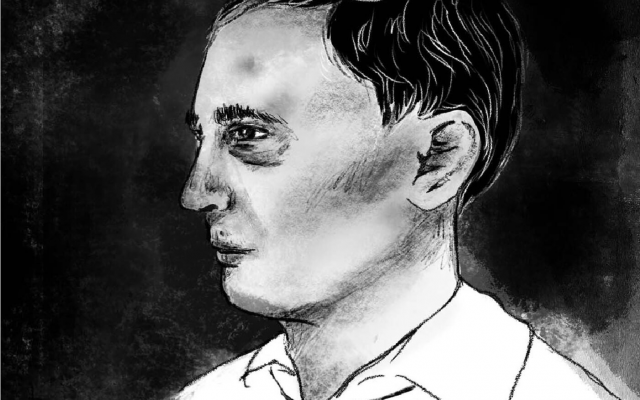Bangladesh: Investigate Assassination of Rohingya Human Rights Defender Mohib Ullah
29 September 2021

Rohingya leader shot dead in refugee camp
(WASHINGTON D.C., September 29, 2021)—Bangladesh authorities should immediately investigate the assassination of Rohingya human rights leader Mohib Ullah, said Fortify Rights today. Between 8:00 p.m. and 8:30 p.m. today, at least one unidentified assailant entered the offices of the Arakan Rohingya Society for Peace and Human Rights (ARSPH) in Kutupalong refugee camp in Cox’s Bazar District, Bangladesh and reportedly shot Mohib Ullah multiple times in the presence of eyewitnesses.
“This is a devastating loss for everyone who knew and loved Mohib Ullah, and it is also a tremendous loss for Myanmar, the Rohingya people, and the human rights movement more broadly,” said Matthew Smith, Chief Executive Officer at Fortify Rights. “Mohib Ullah was committed to truth, justice, and human rights. He had been facing serious and sustained threats in Bangladesh and needed protection. The Government of Bangladesh must immediately investigate anyone who may have been involved in this heinous crime and ensure justice.”
Mohib Ullah is believed to have been in his late 40s. He was the chairperson of the camp-based human rights organization ARSPH. He is survived by his wife and children.
Fortify Rights spoke with one eyewitness to the murder and four Rohingya refugees familiar with the situation, including two members of ARSPH. Fortify Rights also reviewed photographs and videos of the crime scene.
According to Rohingya in Bangladesh familiar with the situation, between 8:00 p.m. and 8:30 p.m., at least one unidentified assailant entered the ARSPH office and shot Mohib Ullah several times. Photographs of his body show at least one gunshot entry-wound on the right side of his chest.
“After he was praying, he was shot,” said one member of ARSPH who is now in hiding and whose identity is withheld here for security purposes. “He was sitting with the community at the office and people came in to shoot him. If someone can shoot Mohib Ullah, then they can easily shoot and kill me. I am now in hiding.”
Eyewitnesses rushed Mohib Ullah’s lifeless body to medical attention; soon after, he was pronounced dead. A Bangladesh official told journalists he was shot three times in the chest.
“Dhaka must get to the bottom of this assassination and hold the perpetrators accountable,” said Matthew Smith. “Dhaka must prioritize the protection of Rohingya people, including human rights defenders, who routinely experience heightened threats to their personal security.”
For several years, Mohib Ullah led efforts to document mass atrocity crimes against Rohingya in Myanmar, and he worked tirelessly to press for basic human rights for Rohingya in Bangladesh. In 2019, he traveled to Washington D.C., where he met former U.S. President Donald Trump in the Oval Office of the White House alongside other human rights defenders. On that same trip, he spoke at the U.S. Secretary of State’s ministerial meeting to advance freedom of religion.
Mohib Ullah routinely ensured that people in power understood the struggles of the Rohingya people. In March 2019, he spoke to the U.N. Human Rights Council, telling U.N. member states:
For decades, we faced systemic genocide in Myanmar . . . They burned our houses, took our land, they gang-raped women and girls, and they killed thousands of us. Today, we are branded as “kalar” [a pejorative term in the Burmese language]. They call us “illegal immigrants,” “Bengali,” [and] “Muslim terrorist.” We are not any of this. We are citizens of Myanmar. We are Rohingya. We are not stateless. Stop calling us that. We have a state; it is Myanmar. So, we want to go home to Myanmar with our rights and our citizenship.
Announcements
21 May 2025
Open letter: Malaysia must lead ASEAN with principle, not hypocrisy, to address the Myanmar crisis

Progressive Voice is a participatory rights-based policy research and advocacy organization rooted in civil society, that maintains strong networks and relationships with grassroots organizations and community-based organizations throughout Myanmar. It acts as a bridge to the international community and international policymakers by amplifying voices from the ground, and advocating for a rights-based policy narrative.
